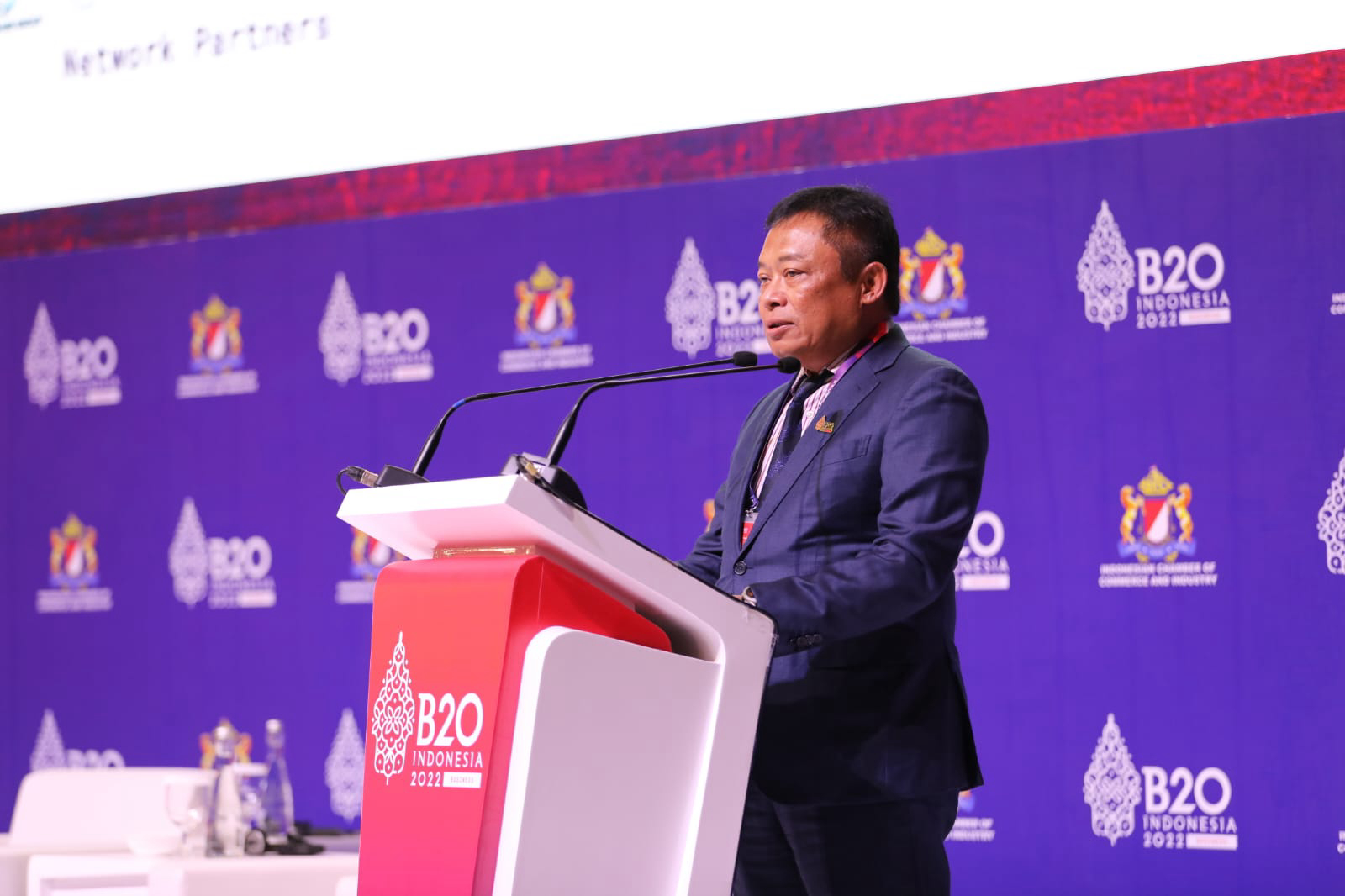
Chair B20 Digitalization Task Force and Telkom President Director Telkom Ririek Adriansyah presented the Digitalization Task Force outcomes in the form of four policy recommendations at a B20 Summit 2022 parallel session.
Jakarta, 14 November 2022 – 2022 is a year full of challenges for all global industrial sectors that are still working hard to recover from the Covid-19 Pandemic throughout this year. One of the factors driving the acceleration of recovery after the Covid-19 pandemic is digitalization. Simultaneously with the B20 dialogue forum which was held on the sidelines of the B20 summit (13/11), the Chair of the B20 Digitalization Task Force and President Director of PT Telkom Indonesia (Persero) Tbk (Telkom) Ririek Adriansyah explained how digital technology takes an innovative, inclusive role, and create collaborative growth.
The B20 Forum, especially the Digitalization Task Force, which consists of co-chairs and B20 members and in collaboration with knowledge partners, has formulated Policy Recommendations from various perspectives to bridge the digital divide. In the last 15 years, the digital economy has grown 2.5 times faster than global GDP. World Bank data showed in 2023 there will be nearly one billion new people connected to the internet globally, which means global internet penetration will reach 66%.
The increasingly and massively growing digital population is a boon to accelerate the digital economy and to explore wider digital opportunities. Data from the 2019 Microsoft Manufacturing Report showed that from a digital infrastructure perspective, there is an estimated potential value of $19.5 trillion unlocked from the big data development, AI and IoT around the world. More broadly, digitization also has a positive impact on the environment. The World Economic Forum estimates that digitalization has the potential to reduce carbon emissions by 15% by continuing to transform, digital can provide positive value not only to society but also to a sustainable environment.
Apart from the enormous benefits and potential that digitalisation can generate, the digital divide is still a real and growing problem since the public at large still cannot benefit from an inclusive digital economic ecosystem. Therefore, the B20 Digitalization Task Force identified four main obstacles which were factors hindering equitable digitalization. The first factor is the different levels of readiness that hinder countries and businesses' ability to take advantage of digitalization as the main driver of national economic development.
The next obstacles are the challenges of providing infrastructure and digital literacy in each region, inadequate support for digitizing micro, small, medium enterprises, and cyber security issues and basic rights in the digital era. To address these challenges, the B20 Digitalization Task Force has formulated four relevant, on-target, and actionable policy recommendations.
The first one is to encourage universal equity of connectivity, aiming to bridge the digital divide by overcoming access barriers to participate in the digital economy and government services. The second is to build the foundation for a sustainable and resilient digital economy.
"Currently, the digital economy is equivalent to 15.5% of global GDP. It is estimated that 70% of the value created in the economy in the next decade will depend on digital infrastructure that supports digital-based businesses. It is imperative to accelerate the development and adoption of digital infrastructure to unlock growth and assist in building resilience across countries," Chair of B20 Digitalization Task Force and Telkom President Director Ririek Adriansyah said during his presentation.
The third policy recommendation is to instill a digital mindset and literacy for every individual and MSME actor so they can adapt well to keep up with digital economic developments. The last point is to strengthen cyber security to provide the best protection for user experience. To solve these problems, Telkom as the backbone of digitalization in Indonesia has made various efforts by strengthening the capabilities of its three business pillars, namely digital infrastructure, digital platforms, and digital services. In the future, this will become more than just a list of recommendations, but can create a real impact on society.
“It is very interesting to see how digitalization drives the economy forward. B20 Indonesia 2022 gives us the opportunity to reflect on our responsibilities. Digitalization opens up new opportunities for many people. With digitalization, I'm sure there will be a better tomorrow," Ririek said.
#DigitalBisa
#UntukIndonesiaLebihBaik